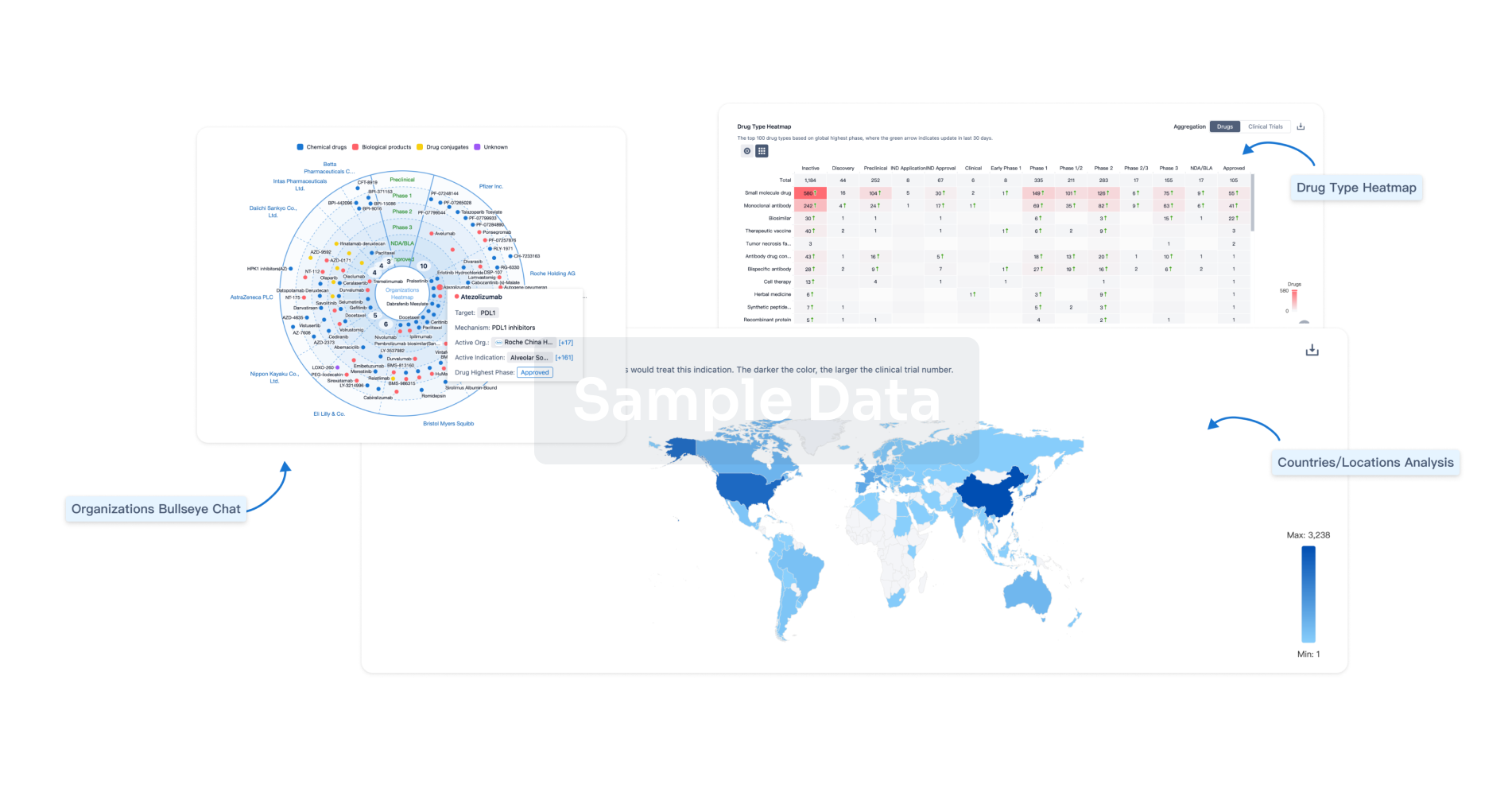Request Demo
Last update 08 May 2025
Glycogen Storage Disease Type Ix
Last update 08 May 2025
Basic Info
Synonyms 9ガタトウゲンチョゾウショウガイ, GSD IX, GSD due to phosphorylase kinase deficiency + [32] |
Introduction Glycogen storage disease usually inherited in an X-linked recessive pattern. It is characterized by a deficiency of hepatic phosphorylase kinase. |
Related
1
Drugs associated with Glycogen Storage Disease Type IxTarget |
Mechanism PHKG2 modulators |
Active Org. |
Originator Org. |
Active Indication |
Inactive Indication- |
Drug Highest PhasePreclinical |
First Approval Ctry. / Loc.- |
First Approval Date20 Jan 1800 |
3
Clinical Trials associated with Glycogen Storage Disease Type IxNCT04454216
GSD VI and GSD IX Natural History
Collection and review of clinical information related to Glycogen Storage Disease Type VI (GSD VI) OR Glycogen Storage Disease Type IX (GSD IX) generated during clinic visits.
Start Date18 Sep 2020 |
Sponsor / Collaborator |
NCT02686710
Comparison of the Effects of TIVA vs VIMA on Content of GSK-3beta in Leucocytes in On-pump Patients: a Randomized Clinical Trial
Assessment of GSK-3beta contents in leukocytes in on-pump cardiosurgical patients receiving either volatile or intravenous anesthesia
Start Date01 Feb 2016 |
Sponsor / Collaborator- |
NCT02635269
Fat and Sugar Metabolism During Exercise in Patients With Metabolic Myopathy
This study aims to characterize the pathophysiological mechanisms of 21 different metabolic myopathies. The study will focus on exercise capacity and the metabolic derangement during exercise.
Start Date01 Jan 2016 |
Sponsor / Collaborator |
100 Clinical Results associated with Glycogen Storage Disease Type Ix
Login to view more data
100 Translational Medicine associated with Glycogen Storage Disease Type Ix
Login to view more data
0 Patents (Medical) associated with Glycogen Storage Disease Type Ix
Login to view more data
228
Literatures (Medical) associated with Glycogen Storage Disease Type Ix01 Oct 2025·Archivos Argentinos de Pediatria
Recurrent rhabdomyolysis as a presenting feature of glycogenosis IX (GSD IX): a case report
Author: Seminara, Alejo ; Newkirk, Guillermo T ; Durand, Consuelo
01 Apr 2025·Molecular Metabolism
The neglected PCK1/glucagon (inter)action in nutrient homeostasis beyond gluconeogenesis: Disease pathogenesis and treatment
Review
Author: Westermeier, Francisco ; González-Chavarría, Iván ; Jara, Nery ; Holyoak, Todd ; Gatica, Rodrigo ; Bertinat, Romina
01 Sep 2024·Clinical Genetics
Genotypic and phenotypic features of 39 Chinese patients with glycogen storage diseases type I, VI , and IX
Article
Author: Lou, Jingan ; Fang, Youhong ; Chen, Jie ; Yu, Jindan ; Ren, Yanqi ; Chen, Lingli ; Ling, Xiuxin ; Lin, Haihua
Analysis
Perform a panoramic analysis of this field.
login
or

AI Agents Built for Biopharma Breakthroughs
Accelerate discovery. Empower decisions. Transform outcomes.
Get started for free today!
Accelerate Strategic R&D decision making with Synapse, PatSnap’s AI-powered Connected Innovation Intelligence Platform Built for Life Sciences Professionals.
Start your data trial now!
Synapse data is also accessible to external entities via APIs or data packages. Empower better decisions with the latest in pharmaceutical intelligence.
Bio
Bio Sequences Search & Analysis
Sign up for free
Chemical
Chemical Structures Search & Analysis
Sign up for free


